Uncategorized
-
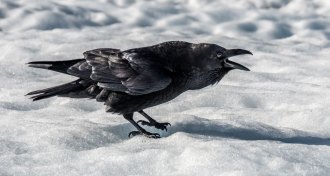 Animals
AnimalsBad moods could be contagious among ravens
Ravens may pick up and share their compatriots’ negativity, a study on the social intelligence of these animals suggests.
-
 Physics
PhysicsThe kilogram just got a revamp. A unit of time might be next
After years of preparation, new definitions for the basic units of mass, temperature and more have now gone into effect.
-
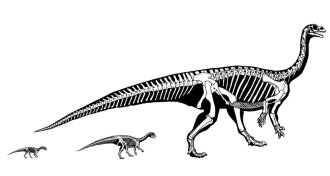 Paleontology
PaleontologyThis early sauropod went from walking on four legs to two as it grew
A new computer analysis shows how Mussaurus patagonicus' center of gravity changed as the dinosaur grew.
-
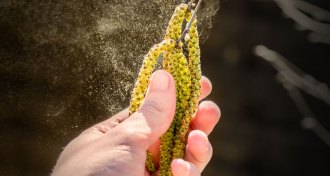 Health & Medicine
Health & MedicineHow allergens in pollen help plants do more than make you sneeze
A plant’s view of what humans call allergens in pollen grains involves a lot of crucial biology. And sex.
By Susan Milius -
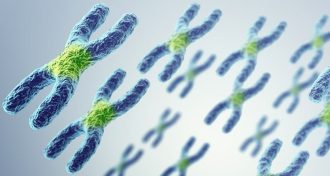 Genetics
GeneticsKey parts of a fruit fly’s genetic makeup have finally been decoded
Jumping genes may make it possible to divvy up chromosomes.
-
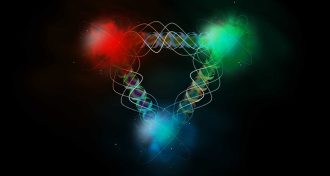 Quantum Physics
Quantum PhysicsAn experiment hints at quantum entanglement inside protons
Particles inside protons seem to be linked on a scale smaller than a trillionth of a millimeter.
-
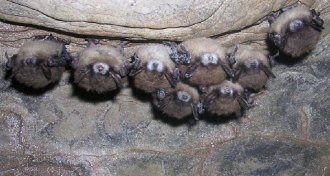 Animals
AnimalsVaccines may help bats fight white nose syndrome
Researchers are developing an oral vaccine that helps little brown bats survive the fungal disease white nose syndrome.
-
 Health & Medicine
Health & MedicineDoes eating ultraprocessed food affect weight gain? It’s complicated
Laying off ultraprocessed foods and switching to whole foods may help some people manage their weight, a small study finds.
-
 Animals
AnimalsSome dog breeds may have trouble breathing because of a mutated gene
Norwich terriers don’t have flat snouts, but can suffer the same wheezing as bulldogs. It turns out that a gene mutation tied to swelling could be to blame.
-
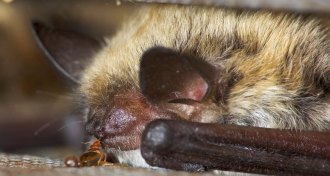 Life
LifeBloodthirsty bedbugs have feasted on prey for 100 million years
Research sheds light on the evolutionary history of the bloodsucking bedbugs. The first species evolved at least as early as the Cretaceous, scientists say.
-
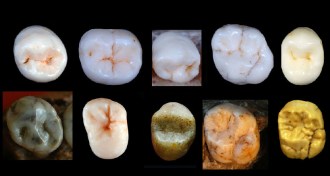 Anthropology
AnthropologyFossil teeth push the human-Neandertal split back to about 1 million years ago
A study of fossilized teeth shifts the age of the last common ancestor between Neandertals and humans.
By Bruce Bower -
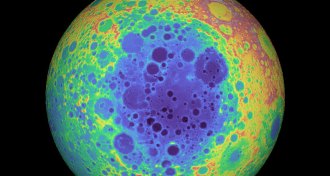 Planetary Science
Planetary ScienceChina’s lunar rover may have found minerals from the moon’s mantle
The Chang’e-4 mission spotted material on the lunar surface that appears to contain bits originating from the moon’s interior.